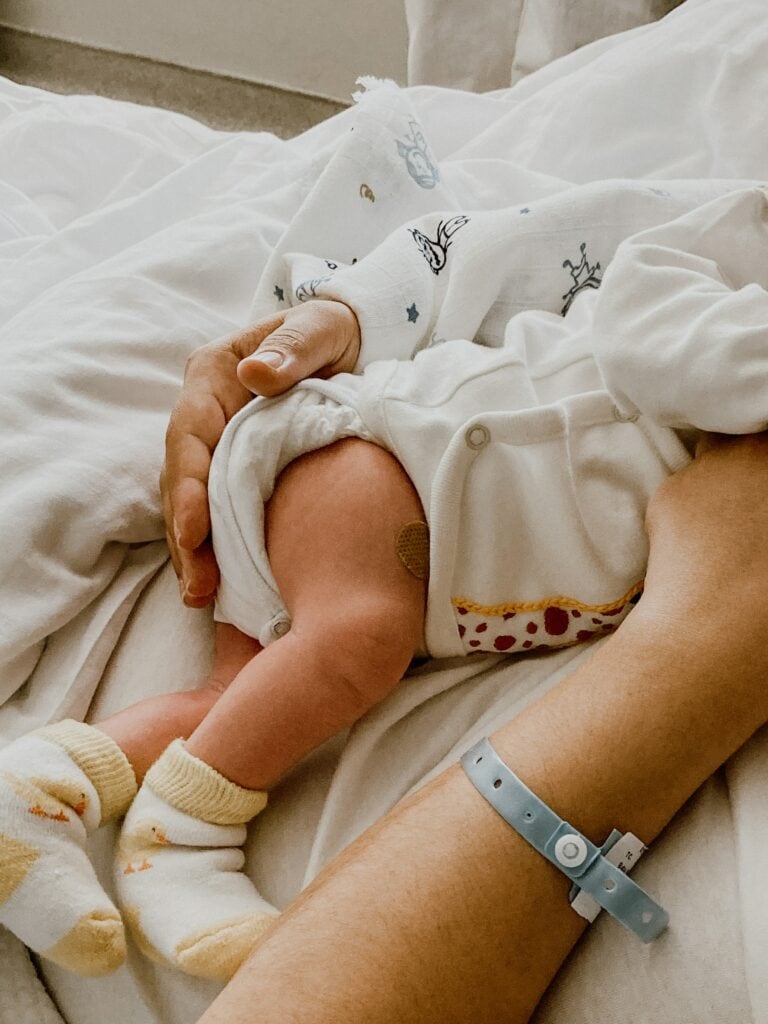
As your pregnancy has progressed, you’ve probably thought about names for your little one and started collecting things for them and decorating their nursery. It’s an exciting time! But, have you given much thought to how your baby is going to come into the world? If you want to have a labor experience that takes into account your preferences, then you’ve got to make a birth plan.
What Is The Meaning Of ‘Birth Plan’?
A birth plan is a written out guide for your doctor, nurses, and midwife. It states how you want the labor and delivery process to go. Yes, mama, you do have choices in the delivery room. A birth plan is one of the best ways to advocate for yourself and your newborn.
Are Birth Plans Worth It?
Absolutely! This document expresses your wishes about your own care as well as your new baby’s. A birth plan can be a big help to healthcare professionals. Through this plan, they’ll know not only what you want, but also what you don’t want.
However, it’s important to remember that sometimes these plans are just guidelines and can’t always be followed to the T. During delivery, something could happen that would make some of your wishes impossible. While advocating for yourself and having a birth plan is important, it’s also vital to keep an open mind and remain flexible if your plan does have to be amended.

What Does A Birth Plan Include?
- What kind of birth do you want to have and where?
This includes whether you want to give birth vaginally or via C-section. For a vaginal birth, you can specify different birth positions, such as squatting or using a birthing stool. You may also want to consider a water birth if you want to opt out of pharmaceutical pain meds during birth. It’s a good idea to highlight your preferences for a C-section even if you plan to give birth vaginally, just in case.
Also, where do you want to give birth? While the majority of women give birth in hospitals (according to the National Institutes of Health, over 95% of births take place in hospitals) you do have the option of going to a birthing center or having a home birth.
- Do you want any pain medication?
Pain management is an important section to include in your birth plan. Specify whether or not you want an epidural or other pain medication, or you want zero pharmaceuticals. You could also state any relaxation techniques such as massages or aromatherapy.
- Who do you want in the room with you?
Decide who your support during the delivery will be. This can be your partner, family members, a doula – whoever you want there with you. Your birth plan isn’t only for medical staff – state what roles people will serve and discuss this with your support team who will be with you.

- What do you want to happen after the birth?
There are a number of things that can happen postpartum. In your birth plan, specify if you want immediate skin-to-skin contact with the baby, delayed cord clamping, as well as breastfeeding preferences. If you want to breastfeed right away, state that in your plan. There are also options to combination feed or bottle feed your newborn.
- Are there any specialized things that you want to happen?
Include any religious or cultural considerations that you’d like to take place after birth.
- Do you want your newborn to stay in your room with you?
In your birth plan, you can specify whether you want your baby to room with you at all times, stay in the nursery while you sleep, or stay in the nursery and be brought to you for feedings.

How Do I Create A Birth Plan?
There really isn’t a right way or wrong way to draw up your birth plan. You can be as specific as you want and include whatever you like. Or, you can decide to hold off on some decisions until the day comes.
You can also create this plan from scratch using the above guidelines, or you can opt for a template – The American College of Obstetricians and Gynecologists has a great template to download.
Your unique pregnancy will have a huge impact on your birth plan – some options may not be available to you if you’re experiencing any complications. During your ultrasound appointments, ask your healthcare provider whether there is anything that will impact the way you give birth.

When Should You Start A Birth Plan?
Start researching your options and thinking about your upcoming labor in your second trimester. You should have your birth plan sorted and finalized before week 36 of your pregnancy to ensure there is enough time to make sure everything in your plan can be adhered to.
Taking a prenatal course can be a fantastic way to get clear on the type of delivery you want to have, as well as what you want to happen once your newborn is here. Our free Prepare for Baby course will guide you on how to advocate for yourself the moment your baby is born, establish healthy sleep habits from day one, and more. Get free access here.
Once you’ve got the basics of your birth plan sorted, discuss it with your OBGYN. They can advise you on anything you’re not sure about and make suggestions based on your unique pregnancy. Once finalized, they’ll put your birth plan in your file.
Your birth plan is a vital way to make sure your voice is heard when you’re in the delivery room. Take some time to think about your labor and what needs to be included to ensure it’s an experience that’s tailored to you.




